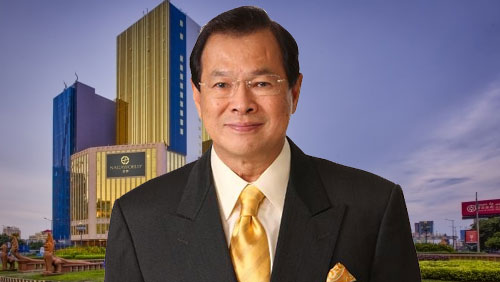Hong Kong-listed casino operator NagaCorp has had a very successful run. Its 2017 gross gaming revenue (GGR) jumped by 85% to $926 million and its net profit improved by 39% to reach $255.2 million. It continued its winning streak this year, recording GGR of $243.19 million for the first quarter—an increase of 181% compared to the same period of last year. Now, its CEO and Executive Director, Tan Sri Chen Lip Keong, has upped his take in the company by a considerable amount.
 Keong, whose net worth according to Forbes Magazine sits at around $3.7 billion, made an on-market purchase of 5.4 million shares of his company. The purchase was managed over several transactions, and he ultimately invested $5 million to acquire the shares. He now is in control of 65.84% of NagaCorp’s share capital.
Keong, whose net worth according to Forbes Magazine sits at around $3.7 billion, made an on-market purchase of 5.4 million shares of his company. The purchase was managed over several transactions, and he ultimately invested $5 million to acquire the shares. He now is in control of 65.84% of NagaCorp’s share capital.
NagaCorp operates NagaWorld, a casino in Phnom Penh, Cambodia. The company holds a license to operate the casino until 2065 and will maintain a gambling monopoly in the capital city until 2035. It is the largest casino resort in all of Indochina, and faces Naga2, which NagaCorp opened in front of the resort in November 2017. Keong paid for Naga2 to be built out of his own pocket, spending $369 million after refusing to pay the high interest rates the banks were demanding to finance the casino.
When Naga2 was first announced, many thought that it could lead to “cannibalization” of NagaWorld. However, the increase in revenue shows that just the opposite has taken place and continued growth is expected by analysts.
NagaCorp is also in the process of trying to attract investments for a casino in Russia’s Primorsky Territory. That casino would be part of the Primorye Integrated Entertainment Resort (PIER) zone, a mega resort project being developed by the government. It hopes to have construction completed at some point next year, with plans to open the casino in 2020.
NagaCorp first operated as a casino on a moored boat, opening its gangway on May 1, 1995. It moved to a land-based facility in 2003 and held its initial public offering (IPO) on the Hong Kong Stock Exchange three years later. It was the first gaming-related company, and the first Cambodian company, to be publicly traded on the exchange.